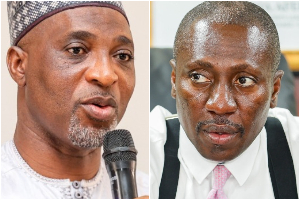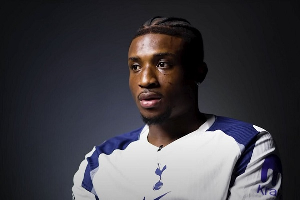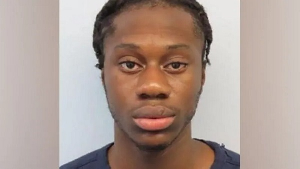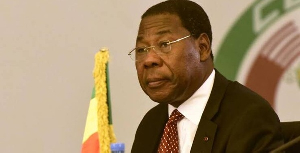By Kofi Ata, Cambridge, UK September 29, 2013
The conclusion reached by former President of Ghana Bar Association, Mr Sam Okudzeto that by his analysis of the written reasons of the SC Justices, the petitioners won by 5-4 majority and not the other way round has invigorated the debate on the SC ruling on the presidential petition. I want to add my voice and share my concerns on the consequential orders by the dissenting Justices in particular and the ruling in general. In fact, I have been wanting to write this article the very day I read the dissenting Justices’ written reasons but decided to wait till the NPP Committee of former Attorney Generals studying the ruling had reported on their findings. However, since the concerns I had is now being discussed following Mr Sam Okudzeto’s analysis there is no point in delaying any longer.
In responses to comments by Nyansasem and LONTO-BOY on my last article “Re: SC Verdict Exposed Polarised Bench”, (Ghanaweb, September 15, 2013), I stated the following: To Nyansasem, I stated among others “....I have a fundamental difference with the dissenting Justices, who in my view shot Nana Akufo-Addo in the foot. Because I am not a lawyer, I am waiting till NPP’s Legal or Constitutional Committee reviewing the ruling comes out with their report before I make my views pubic”. To LONTO-BOY, I wrote, “As I have said in a response to Nyasasem, my real beef is with the dissenting Justices. This is not because they upheld the three claims but for some other reason that I intend to post an article on after NPP’s Committee studying the ruling has reported its findings”.
Article 63(3) of Ghana’s Constitution states, “A person shall not be elected as President of Ghana unless at the presidential election the number of votes cast in his (her) favour is more than fifty per cent of the total number of valid votes cast at the election”. What is now commonly known as 50 percent plus one vote threshold. I have no reason to believe that this has not been the case since the Fourth Republic. Indeed, Ghana has had two presidential reruns since 1992 because none of the candidates obtained the required more than fifty percent in their favour as in 2000 and 2008.
It was abundantly clear that when four dissenting Justices upheld the petitioners’ claims in any of the three violations (of over voting, voting without biometric verification and the absence of presiding officers’ signatures) and subsequently annulled the votes involved, that resulted in none of the presidential candidates obtaining the required more than fifty percent of votes cast in their favour. This automatically triggered Article 63 (3) situation and consequently, the dissenting Justices should have ordered a rerun between President Mahama and Nana Akufo-Addo. Why the dissenting Justices instead ordered a re-vote in only the affected polling stations is a mystery to me.
My beef with the dissenting Justices is that they claimed in their written reasons that they were upholding the Constitution. They also relied on the word “shall” in the Constitution and CI 75 as the basis for annulling votes on pink sheets without signatures of presiding officers and voting without biometric verification. Were they being honest? Did they not order a re-run of the presidential election between the two leading candidates because Article 63 (3) did not contain the word “shall” or was it because the petitioners did not specifically seek that relief?
In my view the dissenting Justices’ were disingenuous by claiming that they were upholding the Constitution and their reliance on the word “shall” to annual votes because Article 57 (5) also contains the word “shall” as follows: “The President shall not, while in office as President, be personally liable to any civil or criminal proceedings in court”. Yet, the President was the first respondent in the petition. They failed to uphold the constitution by not ordering a rerun or a second round between President Mahama and Nana Akufo-Addo.
I suspect that, perhaps, the dissenting Justices did not truly believe that those violations affected the outcome of the 2012 presidential elections as announced by Dr Afrai-Gyan on December 9, 2013. If they were convinced that the violations affected the final outcome, then, they had no option but to have ordered a re-run and not a revote in the affected polling stations. That was a cock-up to pacify NPP and its supporters. My suspicion is made stronger by the order for revotes in the affected polling stations. Did the dissenting Justices really believe that Nana Akufo-Addo could have won massively in affected polling stations to overturn the result of the presidential elections when they were in NDC strongholds?
I am also of the view that the dissenting Justices were unwilling or unable of upholding the constitution by their failure to order a rerun of the presidential election having upheld any or all the three violations that triggered Article 63 (3) situation. By this failure they probably caused more harm than good to Nana Akufo-Addo and Ghana’s Constitution than the four of the majority Justices who consistently rejected all the three or six violations.
Now let me turn to the analysis of Mr Okudzeto and his conclusion that the petitioner won by 5-4 majority. I am not sure if the renowned lawyer and legal luminary was simply being mischievous, playing to the gallery or his addition is weak. I agree with Mr Kweku Baako that Okudzeto’s theory is hard to swallow, though for a different reason (see “Okudzeto’s SC verdict theory hard to swallow – Kweku Baako”, Ghanaweb, September 28, 2013).
Let’s do the addition to prove Okudzeto wrong. For the sake of space, I will discount the three violations of duplicate serial numbers, unknown polling stations and duplicate polling stations results since they were rejected unanimously by the nine Justices. So let’s concentrate on the votes of the nine Justices for the remaining three violations of over voting, voting without biometric verification and absence of presiding officers’ signatures.
Five Justices rejected over voting (Justices Atuguba, Adinyirah, Gbadegbe, Akoto-Bamfo and Baffoe-Bonnie) and four Justices upheld over voting (Justices Ansah, Owusu, Anin-Yeboah and Dotse). That made this category 5-4 majority in favour the respondents;
Five Justices rejected voting without biometric verification (Justices Atuguba, Adinyirah, Gbadegbe, Akoto-Bamfo and Doste) and four Justice upheld it (Justices Ansah, Owusu, Anin-Yeboah and Baffoe- Bonnie). That also made this 5-4 majority in favour of the respondents; and finally
Five Justices rejected absence of presiding officers’ signatures (Justices Atuguba, Adinyirah, Gbadegbe, Akoto-Bamfo and Baffoe-Bonnie) and four Justices upheld it (Justices Ansah, Owusu, Anin-Yeboah and Dotse). This, again is a 5-4 majority in favour of the respondents.
Where is Okudzeto’s 5-4 in favour of the petitioners in the above? It is clear from the above that four Justices were consistent in rejecting all the above three violations and another three were also consistent in upholding all the three. However, Justices Dotse and Baffoe-Bonnie were inconsistent and that could be the basis of Okudzeto’s confused analysis and illogical conclusion which is not based either law or rational thinking. Even if one of the three violations had a 5-4 majority in favour of the petitioners that could not be conclusive of overall 5-4 majority ruling in favour of the petitioners. That would have been 3-2 in favour of the respondents. We should not blame him because he was in an environment where his sort of analysis and conclusion were expected. Sadly, he only fooled his audience.
It is also sad that an influential person within the Bar in Ghana such as Okudzeto is creating misleading impression that the Presiding Justice single handedly mislead Ghanaians in pronouncing the final judgement of the Justices on August 29, 2013. He seems to also suggest that the other eight Justices or the dissenting Justices disagreed with the ruling as read by the Presiding Justice. As a seasoned lawyer and a former president of Ghana Bar Association, he ought to have known that the Presiding Justice could not have sat somewhere alone and come out with the statement he read to the world on August 29, 2013 without any input from the other eight Justices. That is an insult to the eight Justices.
In fact, I believe that the reason why the Justices kept the whole world waiting was due to the time it took them to agree on the contents of statement to be read by the Presiding Justice. What was read by the Presiding Justice was a collective decision and not the will of one mighty man forced down the throats of eight weak men and women of the Supreme Court. Okudzeto’s academic exercise of a 5-4 in favour of the petitioners was a none starter only devised to please disciples of NPP supporters and to discredit the Presiding Justice.
For me, the best chance of the petitioners seeking a review is from Article 63 (3). Justice Baffoe-Bonnie in particular made a review stronger because he misdirected himself by wrongly concluding that, the numbers involving the over voting he upheld were insignificant to change the outcome of the presidential election when he failed to provide any figures to support his conclusion. After all, only 171,000 votes from President Mahama would make him not attaining the magic number of 50 percent plus one and trigger a second round.
The nine Justices could be partly responsible for this confusion as far as their final ruling is concerned due to the inconsistent approach to the petition hearing. They rightly directed themselves to two main matters for determination. These were: (1) Whether or not there are statutory violations in the nature of omissions, irregularities and malpractices in the conduct of the Presidential Elections held on the 7th and 8th December 2012; and (2) Whether or not the said statutory violations, if any, affected the results of the elections. The petitioners and the respondents were directed to limit their claims and responses accordingly. Unfortunately, in their final judgement, some of the Justices got confused over two cardinal questions, particularly, the dissenting Justices who answered the questions correctly but failed to make the correct consequential order of a rerun. I hope academics and students in Ghana will subject the ruling to proper judicial and intellectual analyses and not party political critique in the days and years to come.
Kofi Ata, Cambridge
Opinions of Friday, 4 October 2013
Columnist: Ata, Kofi














